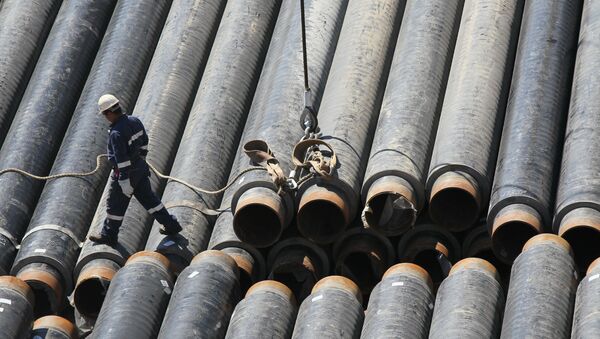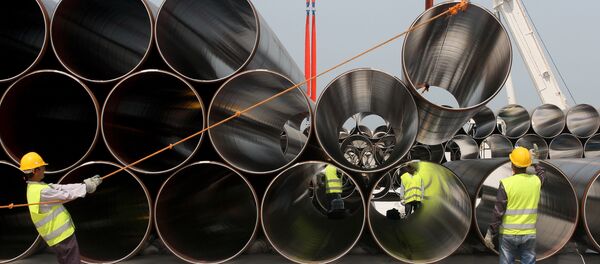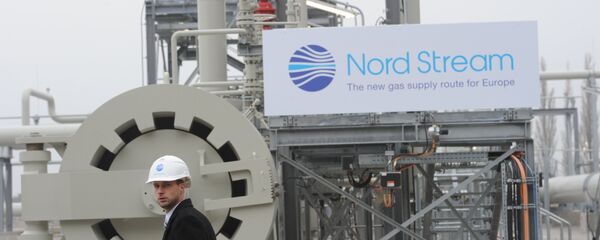According to the article, Europe has long pressed for a gas pipeline often referred to as the "Southern Corridor" that would offer an alternative to Russian gas.
For example, before TAP the EU favored the Nabucco Pipeline which was expected to deliver gas via the Balkans. However, Russia pushed for its own route through Southern Europe, with the pipeline known as South Stream.
When tensions between Moscow and the West began to rise over the Ukrainian crisis, South Stream was abandoned. Then Russia pushed for a new pipeline called Turkish Stream. However, due to tensions between Moscow and Istanbul the project was also cancelled.
As for TAP, the situation is different. On May 17, the project broke ground in Thessaloniki, Greece.
The official event was attended by Greek Prime Minister Alexis Tsipras, high-profile officials from Georgia, Azerbaijan, Albania as well as the EU and the US State Department.
The national governments and project developers expect direct profits and economic opportunities from the pipeline. For example, transit fees could help improve the economy of Greece.
"From the perspective of the US government, TAP will reduce Europe’s dependence on and vulnerability to Russia; in essence, it is a major geopolitical victory. US Secretary of State John Kerry, in a congratulatory letter to Greece’s Prime Minister, said that TAP is a 'prime example of infrastructure that enhances European energy security'," the article read.
The EU intends to complete the project despite the fact that TAP is very expensive and unlikely to be economically efficient, economist Vasily Koltashov told Sputnik Radio.
"TAP is unlikely to be frozen, for example like Nabucco. The goal of the European Commission backed by the US is to push Russia back from gas supplies to the European market. If the pipeline delivers Russian gas this will be gas bought by Azerbaijan from Russia. TAP is profitable for Azerbaijan, Turkey and Greece. The EU will complete the project because it would damage Russia’s interests," the expert said.
According to him, it is important for the European Commission that Russia does not control any gas supplies.
"Russian still holds strong positions in Europe, with Gazprom’s projects, like Nord Stream. Brussels doesn’t like it. The EU does not want Russia to have any independent energy project in Europe," Koltashov added.
According to him, TAP will not be economically efficient because the costs are very high and the project is politically biased. Other reasons are lowering energy prices and decreasing demand for gas in the EU.



